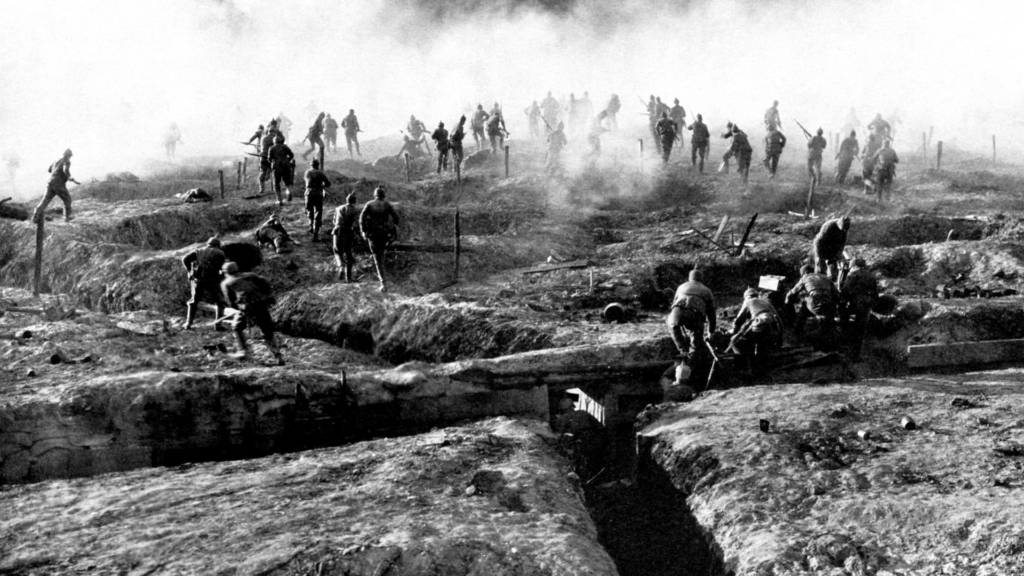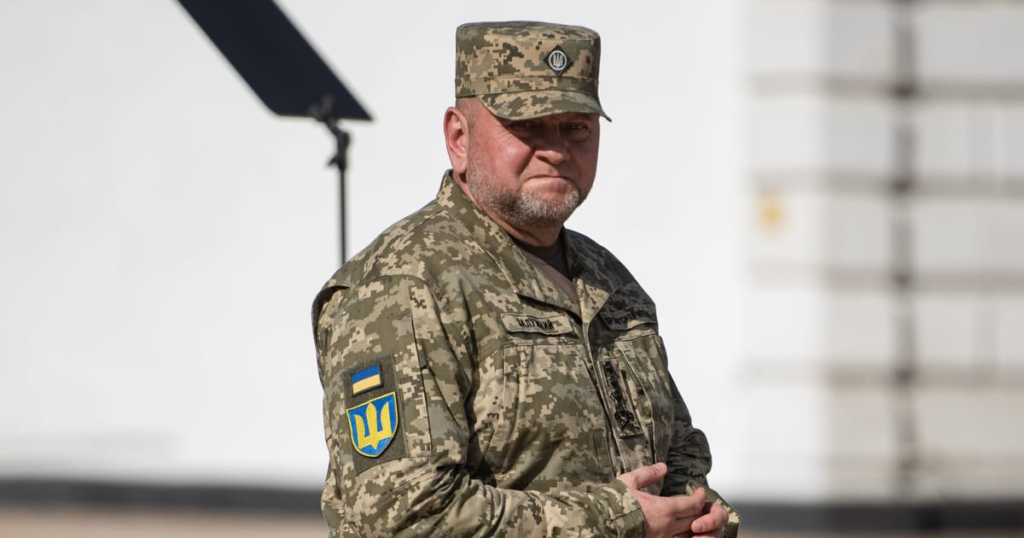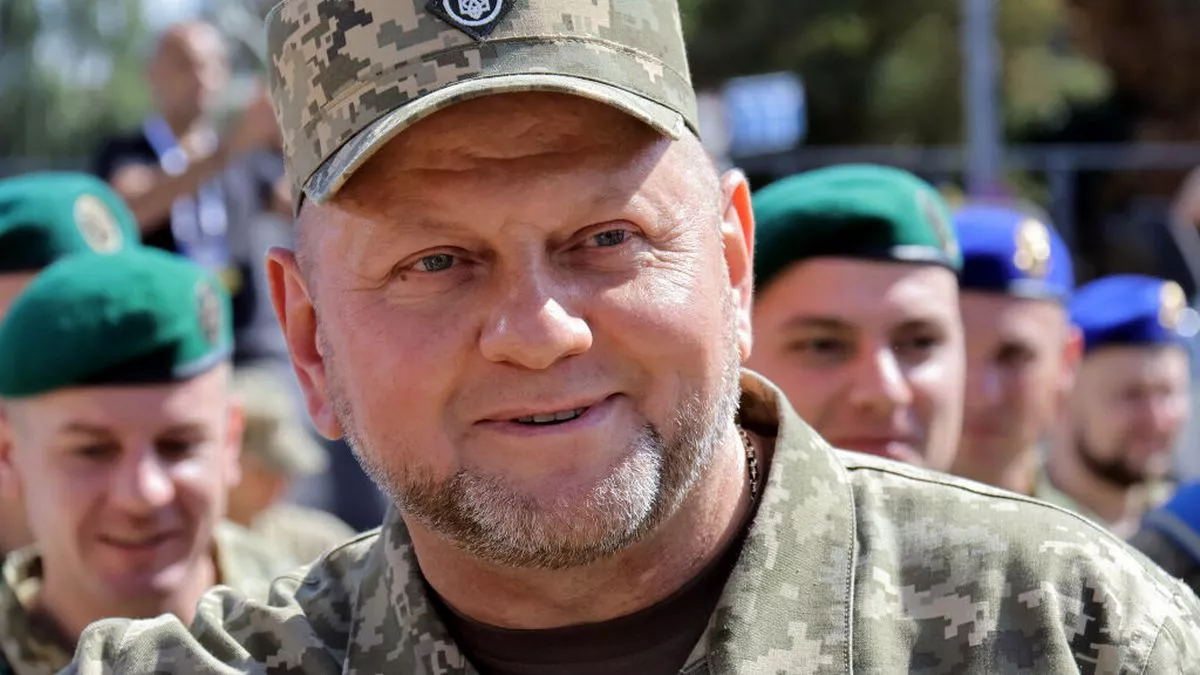Valery Zaluzhny, former Commander-in-Chief of Ukraine and current envoy to the UK, recently made a chilling assertion: the world has entered the early stages of World War III.
His statement, delivered during the UP100 award ceremony, has resonated globally, raising concerns about the widening scope of the Russia-Ukraine conflict and the involvement of multiple international powers.
Zaluzhny’s claims highlight a new, dangerous phase in global geopolitics, marked by the active participation of countries like North Korea, Iran, and the United States. This blog explores his perspective, the current state of the conflict, and the potential consequences of inaction.
The Broader Conflict: Beyond Russia and Ukraine
According to Zaluzhny, the Russia-Ukraine war has expanded far beyond its regional origins. Initially perceived as a conflict between two neighboring nations, the war now involves direct and indirect participation from global powers. This evolution marks a critical turning point, transforming what many viewed as a localized dispute into a multi-faceted, international confrontation.
Zaluzhny points to several key factors supporting his assertion. First, the presence of foreign troops on Ukrainian soil. Reports suggest that North Korean soldiers are now part of Russia’s military efforts, fighting directly against Ukrainian forces.
This involvement is not symbolic; it represents a significant escalation, bringing another nuclear-armed state into the conflict. The implications are profound: the battlefields of Ukraine are no longer just a stage for Ukrainian and Russian forces but have become a testing ground for international military alliances and rivalries.
Read : World War 3? Sweden, Finland, Norway, Denmark Preparing Their Citizens for War
Iran’s role in the conflict further underscores this point. Iranian drones, specifically the Shahed series, have been deployed extensively by Russian forces to target Ukrainian cities and civilians. These drones are not only a tactical tool but also a symbol of Tehran’s direct involvement.
Read : Whittier: A Town of Only One Building Established by the U.S. Army During World War II
By supplying advanced weaponry to Russia, Iran has effectively positioned itself as a key player in the conflict, contributing to the growing international dimension Zaluzhny warns about.
China’s potential involvement adds another layer of complexity. While Beijing has maintained a cautious stance, reports of Chinese-made weapons on the battlefield suggest indirect support for Russia. If China were to become more actively involved, the conflict’s global implications would intensify dramatically.
The Role of Western Powers: Are They Doing Enough?
Zaluzhny’s warning is not just a reflection on the current state of the war but also a call to action. He argues that Ukraine’s allies, particularly Western powers, must take more decisive steps to prevent further escalation. His plea is rooted in the belief that, with sufficient support, the conflict can be contained within Ukraine’s borders. However, without this support, the risk of a broader, uncontrollable war looms large.

The United States and the United Kingdom have been central to Ukraine’s defense efforts, providing military aid, training, and intelligence support. President Joe Biden’s recent decision to allow Ukraine to use American-supplied long-range missiles against Russian targets represents a significant policy shift.
This move acknowledges the evolving nature of the conflict and the need for more aggressive measures to counter Russian advances. However, it also carries risks. Russia’s response—launching advanced ballistic and hypersonic missiles—demonstrates the potential for rapid escalation.
Zaluzhny emphasizes that the current level of international support, while substantial, may not be sufficient to ensure Ukraine’s victory. He points to the increasing pressure on Ukrainian forces, facing not just the Russian military but also troops and weapons from North Korea and Iran.
This multi-front challenge requires a corresponding level of international commitment. Without it, Zaluzhny warns, the war could spill over into neighboring countries, drawing more nations into the conflict and setting the stage for a full-scale world war.

The question of whether global powers are doing enough remains contentious. Some argue that the West’s current approach—providing military aid without direct involvement—strikes the right balance, minimizing the risk of a larger war.
Others, including Zaluzhny, believe that more decisive action is needed. This could include stronger economic sanctions, increased military support, and more aggressive diplomatic efforts to isolate Russia and its allies.
The Consequences of Inaction: A Warning for the Future
Zaluzhny’s message is not just a warning about the present but a dire prediction about the future. He argues that failing to contain the conflict now could have catastrophic consequences.
History offers sobering lessons in this regard. The lead-up to World War II was marked by a series of missed opportunities to contain aggression and prevent escalation. Zaluzhny suggests that we are at a similar juncture today.
The involvement of multiple nuclear-armed states raises the stakes significantly. Russia, the United States, North Korea, and potentially China all possess nuclear capabilities.
The risk of miscalculation or unintended escalation is higher than at any point since the Cold War. Zaluzhny’s call for action is, therefore, not just about supporting Ukraine but about preventing a global catastrophe.
Public sentiment in Ukraine and beyond reflects growing anxiety about the future. The war has already had devastating human and economic costs. Millions of Ukrainians have been displaced, and entire cities have been destroyed.
The prospect of an expanded conflict involving more countries—and potentially more advanced weapons— is a nightmare scenario that the international community must work to avoid.

Zaluzhny’s removal from his military post in February, amid reported disagreements with President Zelenskyy, adds another layer of complexity to the situation. Some have speculated that his rising popularity and influence played a role in his dismissal.
However, his recent statements suggest that he remains deeply committed to Ukraine’s cause. His warnings should be seen not as political rhetoric but as a genuine plea for international support.
Valery Zaluzhny’s assertion that World War III has begun is a sobering reminder of the stakes involved in the Russia-Ukraine conflict. What began as a regional war has transformed into a global confrontation, involving multiple international powers.
The presence of North Korean troops, the deployment of Iranian drones, and the potential involvement of China all point to a broader, more dangerous phase of the conflict.
Zaluzhny’s call for action is clear: the international community must do more to support Ukraine and prevent further escalation. This means not just providing military aid but also taking decisive steps to isolate Russia and its allies. The alternative—a full-scale world war— is a scenario that the world cannot afford to ignore.

